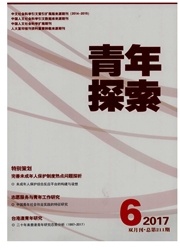

 中文摘要:
中文摘要:
内容摘要:在农村土地实行集体产权的情况下,征地补偿费的村级分配成为一个充满不确定性的复杂问题,这种不确定性孕育着各种可能的矛盾。基于对牛村征地补偿费村级分配实践的分析,研究发现,像牛村这样一个宗族性的、有着村社权威的村庄自身可以有效地组织村民商定土地补偿费分配方案并且依靠自身力量化解土地补偿费分配过程中的冲突。牛村在土地补偿费分配方案制定过程中注意平衡不同村民的利益诉求,并且在解决土地补偿费分配矛盾时具有灵活性,避免情义失衡以及村落人际关系的破坏。从农村社会治理的角度来看,当下这种通过村民自治方式来处理征地补偿费村级分配问题,一来可以将征地补偿费分配矛盾抑制在村庄内部,避免将基层干部及基层政府拉扯进去,二来可以借用村庄内部的冲突处理方式和资源来处理由征地补偿费村级分配所引发的村民矛盾;
 英文摘要:
英文摘要:
Due to rural land's Collective Property Rights, land requisition compensation's village-lev- el allocation is uncertain, which can induce contradictions. Based on analysis of Niu Cun' s land requisition compensation' s village-level allocation, the paper finds patriarchal village like Niu Cun can effectively orga- nize villagers to come to an agreement on land requisition compensation' s village-level allocation, and settle disputes relying on village' s inner power. Besides, villagers' different interest appeals are balanced in the al- location plan and allocation disputes are solved flexibly in order to keep balance of ties of brotherhood and in- terpersonal relationship. From approach of rural society' s governance, dealing with land requisition compen- sation's village-level allocation contradiction through village self-governance has many advantages. One ad- vantage is it can keep contradictions under village, and avoid pulling grassroots cadres and governments at the grassroots level into these contradictions; another advantage is it can deal with contradiction using vil- lage's intrinsic disputes solution methods and resources.
 同期刊论文项目
同期刊论文项目
 同项目期刊论文
同项目期刊论文
 期刊信息
期刊信息
